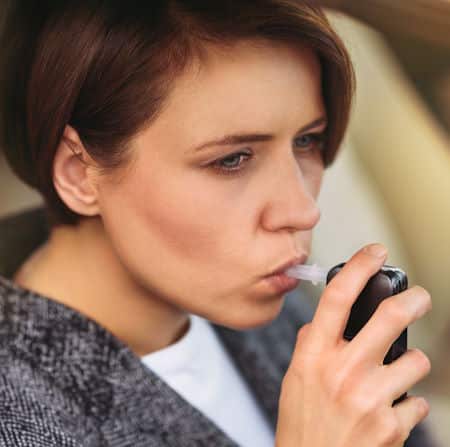What Is An Interlock Restricted Driver’s License In Colorado?
Interlock Restricted Driver’s License – Proving You’re Sober Every Time You Drive
An interlock-restricted driver’s license in Colorado is a specific type of driver’s license that is issued to those who have been convicted of driving under the influence of alcohol (DUI) or related offenses. This type of restricted driver’s license allows people to drive legally under certain conditions while ensuring they comply with state laws designed to prevent further alcohol-related offenses.
Do you need to talk with a Colorado Springs DUI Lawyer? Your freedom is our only goal, and we take DUI charges seriously. Contact us today for your Free Consultation!
The key feature of this license is the requirement to use an ignition interlock device in their vehicle.
Why Require The Interlock Restricted Driver’s License
The primary goal of the ignition interlock restricted driver’s license is to reduce recidivism among DUI offenders by limiting their ability to operate a vehicle while impaired. The ignition interlock device is a breathalyzer installed in the driver’s vehicle that requires the driver to provide a breath sample before the engine can start.
If any measurable amount of alcohol is detected in the driver’s system, the vehicle will not start.
Eligibility For An Interlock Restricted Driver’s License
To be eligible for an interlock-restricted driver’s license in Colorado, people must generally meet the following criteria:
- Conviction for DUI or DWAI. The driver must have been convicted of driving under the influence (DUI), driving while ability impaired (DWAI), or a similar alcohol-related offense.
- Serving a Revocation Period. They must be serving a mandatory period of license revocation as a result of their conviction.
- Application for the Interlock Program. The driver convicted of DUI must apply for the interlock program, which includes installing an approved ignition interlock device in their vehicle.
Requirements and Regulations For An Interlock Restricted Driver’s License
Once a driver has been granted an interlock-restricted license, there are several requirements and regulations they must follow:
- Installation of an Ignition Interlock Device: The device must be installed in every vehicle the offender operates. The installation must be performed by an approved provider.
- Regular Monitoring and Maintenance: The interlock device must be regularly inspected and calibrated to ensure it is functioning correctly. This typically involves monthly visits to a service provider.
- Zero Tolerance for Alcohol: The driver must have a blood alcohol content (BAC) of 0.000 at all times while driving. Any attempt to start the vehicle with a detectable BAC will result in a lockout and can lead to further legal consequences.
- Costs: All costs associated with the interlock device, including installation, monthly service fees, and any necessary maintenance or calibration, are the responsibility of the driver.
- Completion of the Program: Depending on the specifics of the conviction and the driver’s history, the required period for maintaining an ignition interlock device may vary. Successfully completing this period is typically a precondition for restoring a standard driver’s license.
Effectiveness
Studies suggest that ignition interlock devices are effective in reducing repeat DUI offenses among users. The presence of the device provides a physical barrier to driving while impaired and a constant reminder of the legal and safety implications of DUI.
Conclusion
An interlock-restricted driver’s license in Colorado is a rehabilitative measure designed to allow those convicted of DUI-related offenses to continue driving under strict conditions that promote public safety. By requiring the use of an ignition interlock device, the program aims to mitigate the risk of repeat offenses while providing offenders a path to regain their full driving privileges. This program reflects a balance between punitive measures and supportive interventions, underscoring the state’s commitment to road safety and responsible driving behaviors.
NEED LEGAL HELP?
Contact Us Now!

